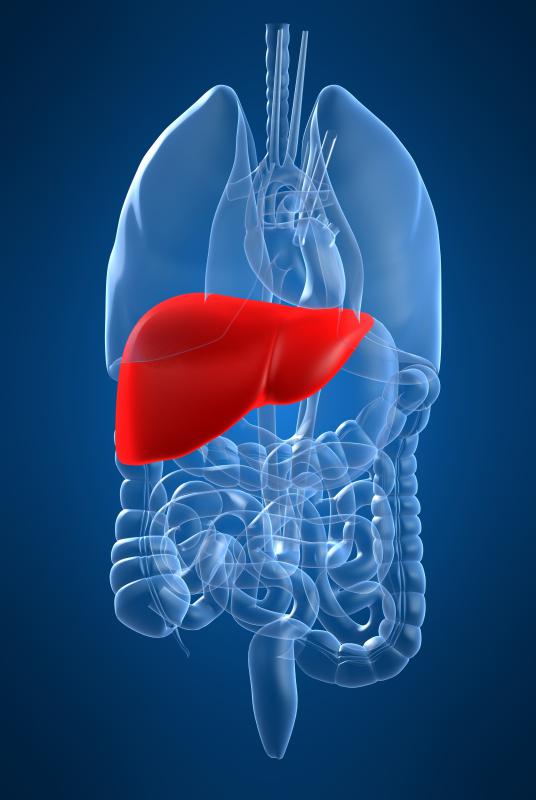At WiseGEEK, we're committed to delivering accurate, trustworthy information. Our expert-authored content is rigorously fact-checked and sourced from credible authorities. Discover how we uphold the highest standards in providing you with reliable knowledge.
What Is Involved in Metastatic Liver Cancer Treatment?
There are many metastatic liver cancer treatment options available, including chemotherapy, embolization and radiation therapy. In addition, other treatment methods include surgery and tumor ablation. Metastatic liver cancer, also called secondary liver cancer or metastases to the liver, is a disease in which cancer originates elsewhere in the body and spreads to the liver. While the original site of the cancer is called the primary cancer site and the liver is the secondary cancer site, the metastatic cancer behaves consistent with its origin. Generally, the type of treatment an affected person undergoes depends upon the primary cancer and the location and size of the metastatic tumor.
The use of chemotherapy in metastatic liver cancer treatment is limited since there appears to be a low response rate. Still, it is an option that is available when the cancer has spread not only to the liver, but to other organs as well. This is called whole-body, or systemic, chemotherapy. Systemic chemotherapy might also be a treatment option even if the spread is contained in the liver.

Embolization is another form of metastatic liver cancer treatment. This is a procedure that involves an injection of tiny pellets into the arteries. The injection results in a blockage of blood flow to parts of the liver. Travel through the bloodstream is how cancer cells spread and settle into the liver to begin with. The blockage made by the pellets, then, makes it difficult for the tumor to grow.

In radiation therapy, high-energy rays relieve pain and destroy cancer cells, thereby shrinking tumors. Radiation by itself does not cure cancer, and so might not be a sole form of metastatic liver cancer treatment. The method requires the use of low doses because radiation not only destroys cancer cells, but it destroys normal liver tissue as well.

Surgery as a form of metastatic liver cancer treatment gives a person a better chance for a recovery. This is because surgery involves the partial or entire removal of a tumor. Surgery is an option not only for smaller tumors but larger ones as well, although with a tumor that is very large, the main treatment method might be a liver transplant.
If surgery is not possible, another metastatic liver cancer treatment option is tumor ablation. This treatment option makes use of heat or extreme cold to fight the cancer. Heat, or radiofrequency ablation, burns the tumor in place while extreme cold, or cryosurgery, freezes it in place. Both the heat and extreme cold will destroy cancer cells.
AS FEATURED ON:
AS FEATURED ON:













Discuss this Article
Post your comments